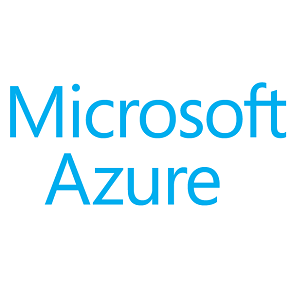
The Microsoft Azure architect technologies AZ-303 course covers the virtualization, automation, networking, storage, identity, security, data platform, and application infrastructure. This course outlines how decisions in each thesis area affect an overall solution.
In this module, you will learn about Azure virtual machines including planning, creating, availability and extensions. This module includes:
Lessons
– Select Virtual Machine Size
– Configure High Availability
– Deploy Azure Dedicated Hosts
– Deploy and Configure Scale Sets
– Configure Azure Disk Encryption
After completing this module, students will be able to:
– Plan for virtual machine implementations.
– Create virtual machines.
– Configure virtual machine availability, including scale sets.
– Understand High Availability options for VMs in Azure
In this module, you will learn about the tools an Azure Administrator uses to manage their infrastructure. This includes the Azure Portal, Cloud Shell, Azure PowerShell, CLI, and Resource Manager Templates. This module includes:
Lessons
– Azure Resource Manager Templates
– Save a Template for a VM
– Evaluate Location of New Resources
– Configure a Virtual Hard Disk Template
– Deploy from a Template
– Create and Execute an Automation Runbook
After completing this module, students will be able to:
– Leverage Azure Resource Manager to organize resources.
– Use ARM Templates to deploy resources.
– Create and Execute an Automation Runbook
– Deploy an Azure VM from a VHD
– Understand Azure encryption technologies
In this module, you will learn about basic virtual networking concepts like virtual networks and subnetting, IP addressing, network security groups, Azure Firewall, and Azure DNS.
Lessons
– Virtual Network Peering
– Implement VNet Peering
After completing this module, students will be able to:
– Connect services with Virtual Network Peering
– Configure VNet Peering
– Understanding Service Chaining
– Modify or delete VNet Peering
In this module, you will learn about network traffic strategies including network routing and service endpoints, Azure Load Balancer, Azure Application Gateway, and Traffic Manager.
Lessons
– Deploy Azure Load Balancer
– Implement an Application Gateway
– Understand Web Application Firewall
– Deploy Azure Firewall
– Deploy Azure Front Door
– Implementing Azure Traffic Manager
– Implement Network Security Groups and Application Security Grou
– Deploy Azure Bastion
After completing this module, students will be able to:
– Select a Load Balancer solution
– Configure Application Gateway
– Deploy Azure Firewall
– Create an Azure Front Door
– Understand Traffic Manager routing methods
– Configure Network Security Groups (NSGs)
In this module, you will learn about basic storage features including storage accounts, blob storage, Azure files and File Sync, storage security, and storage tools.
Lessons
– Storage Accounts
– Blob storage
– StorageSecurity
– Managing Storage
– Accessing Blobs and Queues using AAD
– Configure Azure Storage Firewalls and Virtual Networks
After completing this module, students will be able to:
– Understand Storage Account services and types
– Configure Blob storage, accounts, containers, and access tiers
– Implement Shared Access Signatures
– Understand Azure Storage firewalls and virtual networks
In this module, you will learn how to secure identities with Azure Active Directory, and implement users and groups.
Lessons
– Overview of Azure Active Directory
– Users and Groups
– Domains and Custom Domains
– Azure AD Identity Protection
– Implement Conditional Access
– Configure Fraud Alerts for MFA
– Implement Bypass Options
– Configure Trusted IPs
– Configure Guest Users in Azure AD
– Manage Multiple Directories
After completing this module, students will be able to:
– Understand how Multiple AAD organizations interact
– Add Guest Users to Azure AD
– Configure Location Condition Configuration
– Configure Azure MFA settings
– Implement Conditional Access Azure MFA
In this module, you will learn about managing your subscriptions and accounts, implementing Azure policies, and using Role-Based Access Control.
Lessons
– Create Management Groups, Subscriptions, and Resource Groups
– Overview of Role-Based Access Control (RBAC)
– Role Based Access Control (RBAC) Roles
– Azure AD Access Reviews
– Implement and Configure an Azure Policy
– Azure Blueprints
After completing this module, students will be able to:
– Understand Resource Group Organization
– Understand how RBAC works
– Create an Azure AD access review
– Create and manage policies to enforce compliance
– Create a Blueprint
In this module, you will learn how to install and configure Azure AD Connect and implement Azure AD Connect Health.
Lessons
– Install and Configure Azure AD Connect
– Configure Password Sync and Password Writeback
– Configure Azure AD Connect Health
After completing this module, students will be able to:
– Implement Azure AD seamless single sign-on
– Perform an Azure AD Connect installation
– Deploy Azure AD Connect Health
In this module, you will learn how to migrate workloads using Azure Migrate, perform VMware agent-based and agent-less migrations, and perform Azure Backup and Azure Site Recovery.
Lessons
– Migrate Workloads using Azure Migrate
– VMware – Agentless Migration
– VMware – Agent Based Migration
– Deploy Azure Backup
– Azure to Azure Site Recovery
– Implement Azure Update Management
After completing this module, students will be able to:
– Understand agent-based migration architecture
– Prepare for Azure for migration
– Prepare an on-premises VMware environment
– Understand Azure VM backup architecture
– Manage updates and patches for Azure VMs
In this module, you will learn about Azure Monitor, Azure Workbooks, Azure Alerts, Network Watcher, Azure Service Health, Azure Application Insights.
Lessons
– Azure Infrastructure Security Monitoring
– Azure Monitor
– Azure Workbooks
– Azure Alerts
– Log Analytics
– Network Watcher
– Azure Service Health
– Monitor Azure Costs
– Azure Application Insights
– Unified Monitoring in Azure
In this module, you will learn about Azure Key Vault and implementing authentication using Azure Managed Identities.
Lessons
– Azure Key Vault
– Azure Managed Identity
After completing this module, students will be able to:
– Explain Key Vault uses such as screts, key, and Certificate management
– Use Managed Identities with Azure resources
In this module, you will learn how to create an App Service web App for Containers, create and configure an App Service Plan, and create and manage Deployment Slots.
Lessons
– Create and Configure Azure App Service
– Create an App Service Web App for Containers
– Create and Configure an App Service Plan
– Configure Networking for an App Service
– Create and Manage Deployment Slots
– Deploy Logic Apps
– Deploy Azure Functions
After completing this module, students will be able to:
– Configure an Azure App Service
– Create an App Service Plan
– Create a Workflow using Azure Logic Apps
– Create a Function App
In this module, you will learn how to run Azure Container instances and how to deploy Kubernetes with AKS.
Lessons
– Azure Container Instances
– Configure Azure Kubernetes Service
After completing this module, students will be able to:
– Run Azure Container instances
– Deploy Kubernetes with AKS
In this module, you will learn about Azure Table Storage and recommend options for CosmsoDB APIs.
Lessons
– Configure Storage Account Tables
– Select Appropriate CosmosDB APIs
After completing this module, students will be able to:
– Outline the Table Service Data Model
– Understand options for Azure Cosmos DB
– Understand high availability using CosmosDB
In this module, you will create an Azure SQL Database single database, create an Azure SQL Database Managed Instance, and review high-availability and Azure SQL database.
Lessons
– Configure Azure SQL Database Settings
– Deploy Azure SQL Database Managed Instances
– High Availability and Azure SQL Database
After completing this module, students will be able to:
– Create an Azure SQL Database single database
– Create an Azure SQL Database Managed Instance
– Recommended high-availability architectural models used in Azure SQL Database
If you do not yet have knowledge regarding Microsoft Azure, we recommend the training Microsoft Azure Fundamentals 2 days of Microsoft Azure Fundamentals 1 day .
On the overview page for Microsoft trainings you can also find other related workouts like the Microsoft Azure Administrator AZ-104, Microsoft Azure Architect Design AZ-304, Microsoft Azure Developer / Developing Solutions for Microsoft Azure (AZ-204)Microsoft Azure DevOps Engineer (AZ-400) en Microsoft Azure Security Technologies (AZ-500).
The Microsoft Azure architect technologies AZ-303 training is aimed at IT professionals with expertise in designing and implementing solutions that run on Microsoft Azure. They should have broad knowledge of IT operations including networking, virtualization, identity, security, business continuity, disaster recovery, data platform, budgeting and governance. Azure Solution Architects use the Azure Portal and as they become more proficient, they use the Command Line Interface. Candidates must have expert level skills in Azure administration and experience with Azure development processes and DevOps processes.
The level of the Microsoft Azure architect technologies AZ-303 course is MBO+.
Successful Azure Solution Architects AZ-303 enter this role with experience in operating systems, virtualization, cloud infrastructure, storage structures, and networking.
Furthermore, do you have;
The total duration of the Microsoft Azure architect technologies AZ-303 training is 4 days.
The price for this training includes the cost of €195 for the Microsoft Azure architect technologies known as AZ-303 and the exam lasts approximately 210 minutes where non-native English speakers get an extra 30 minutes.
More information about Microsoft Azure architect technologies AZ-303 exam can be found from official provider, that is Microsoft.
If you register your company for a Microsoft Azure architect technologies AZ-303 incompany via D-ICT Solutions, you can always have one of our trainers/consultants visit you (or virtually) for an implementation session Microsoft Azure. you an expert advice regarding the optimization or configuration of Azure within your organization.
